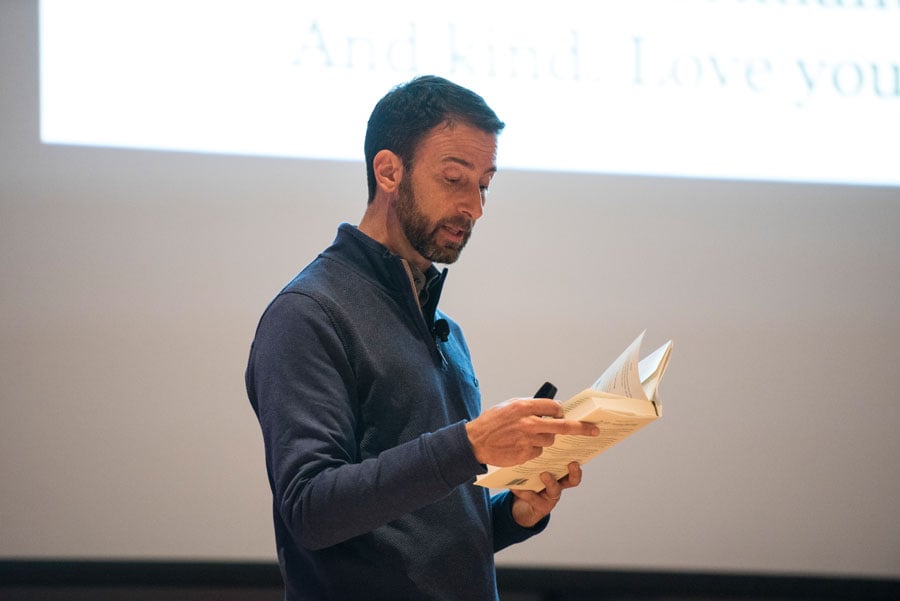Northwestern professor discusses successful relationships at talk on new book
Colin Boyle/Daily Senior Staffer
Psychology Prof. Eli Finkel reads out of his new book “The All-Or-Nothing Marriage.” Finkel held a talk and Q&A with NPR’s Peter Sagal at the Kellogg School of Management Global Hub on Friday.
September 25, 2017
A Northwestern professor said people now have more choices when deciding the nature of their relationships during a talk Friday.
Psychology Prof. Eli Finkel offered relationship advice and discussed his research about marital relationships, while promoting his new book, “The All-or-Nothing Marriage.” More than 100 people attended the event, held at the Kellogg School of Management Global Hub.
Finkel said the book is about how the best marriages become better, how average marriages get worse and how to have a successful relationship.
“We have more choice than ever before,” Finkel said. “We can marry or not marry, we can divorce or not divorce, we can determine the rules of the relationship.”
Finkel also answered questions about the book during a Q&A period moderated by NPR’s Peter Sagal.
One of the most important lessons to learn from the book is that all relationships — and the expectations that accompany them — are constantly evolving, Finkel said. He added that modern marriages are different now, and although it takes time and effort to recalibrate or bring the spark back in a relationship, it’s necessary to strengthen it.
“We have arrived in an era where marriage is fragile, but it is potentially precious,” Finkel said. “It is more difficult to have a really strong marriage, but at the same time, those of us who are able to build a very strong marriage … are flourishing to a large degree.”
One aspect of the book presented by Finkel is the idea of “love hacks,” little actions one can do to quickly improve a relationship. Finkel said “love hacks,” like discussing past arguments from an objective standpoint, can temporarily fix complicated situations.
Kellogg Prof. Ping Dong told The Daily she attended the event to learn more about Finkel’s research because she is conducting research on how relationships affect consumer choices.
“I hope that it will be a tool to help with my own research in psychology,” Dong said. “There are some interesting connections between both his research and my own.”
Finkel told The Daily the most rewarding part of his work was “figuring out that it’s an optimistic story, how the best marriages work.”
Richard Wong (Medill ‘08) told The Daily he could feel the energy in the audience, and that he enjoyed the whole evening.
“It was really well done, the prepared questions, and how they opened up so much to the general public,” Wong said.
Email: carlymenker2021@u.northwestern.edu
Twitter: @carlymenker



